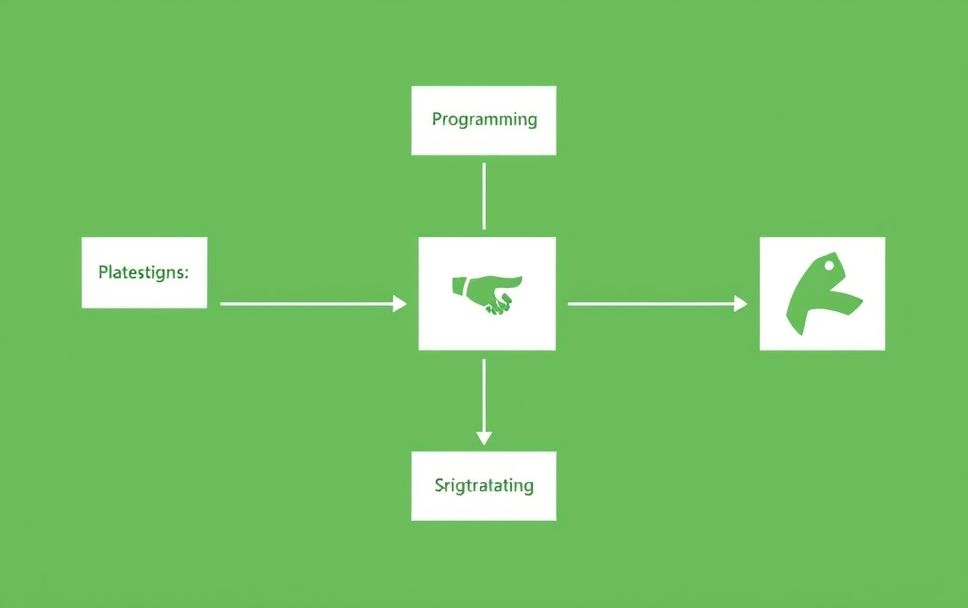Understanding Programming Paradigms
Programming paradigms are fundamental styles or approaches to programming that dictate how software is structured and how tasks are executed. They serve as frameworks that guide programmers in designing algorithms and managing code complexity. Understanding these paradigms is crucial for developers, web administrators, and anyone involved in technology, as they influence the efficiency, readability, and scalability of code.
Why Are Programming Paradigms Important?
The importance of programming paradigms lies in their ability to enhance productivity and code maintainability. By applying the right paradigm, developers can leverage specific methodologies that align with their project requirements. For instance, choosing between Object-Oriented Programming (OOP) or Functional Programming (FP) can significantly impact how a system is designed and how easily it can be modified in the future.
Types of Programming Paradigms
- Imperative Programming: Focused on how to execute instructions. It involves commands that change a program’s state. Examples include languages like C and Python.
- Declarative Programming: Centers on what the program should accomplish without specifying how to achieve it. SQL is a prime example.
- Functional Programming: Treats computation as the evaluation of mathematical functions and avoids changing state. Haskell and Scala are notable languages.
- Object-Oriented Programming: Organizes software design around data, or objects, rather than functions and logic. Java and C++ are prominent examples.
- Logic Programming: Based on formal logic. A program is a set of sentences in logical form, expressing facts and rules about some problem domain. Prolog is a classic example.
Real-World Examples and Applications
Understanding programming paradigms is not just theoretical; they have practical implications across various domains:
- Web Development: Frameworks like React utilize declarative programming, allowing developers to describe what the UI should look like, making it easier to manage dynamic content.
- Data Science: Functional programming languages, such as R and Python, allow for efficient data manipulation and statistical analysis, enabling data scientists to write cleaner and more reproducible code.
- Game Development: Object-oriented programming is extensively used in game engines like Unity, where objects represent characters, environments, and other elements, simplifying complex interactions.
- Artificial Intelligence: Logic programming is often used in AI for knowledge representation and reasoning, with Prolog being a popular choice for developing AI applications.
How to Use Programming Paradigms in Your Daily Work
Incorporating programming paradigms into your daily workflow can significantly enhance your coding practices. Here are some actionable steps:
- Identify the Problem Domain: Understand the requirements of your project. For data manipulation, consider using functional programming. For large systems, object-oriented may be more suitable.
- Choose the Right Tools: Select programming languages and frameworks that align with the chosen paradigm. For instance, use Python for OOP or Haskell for functional programming.
- Practice Coding Patterns: Familiarize yourself with design patterns related to your chosen paradigm. For OOP, learn about Singleton and Factory patterns.
- Collaborate with Peers: Share knowledge and experiences regarding different paradigms to broaden your understanding and application capabilities.
Related Concepts in Programming
Programming paradigms are interconnected with various concepts in software development. Here are some related terms to explore:
- Design Patterns: Solutions to common problems in software design that can be applied across paradigms.
- Software Architecture: The high-level structure of a software system, which can be influenced by the chosen programming paradigm.
- Agile Methodologies: Development practices that can embrace various paradigms, focusing on iterative development and flexibility.
Conclusion: Embracing Programming Paradigms
Understanding and utilizing programming paradigms allows developers to write cleaner, more efficient, and maintainable code. By choosing the appropriate paradigm for a given problem, you can enhance your programming skills and contribute to more effective software solutions. As technology continues to evolve, staying informed about these paradigms will empower you to adapt and thrive in the ever-changing landscape of software development.
Reflection
As you continue your programming journey, reflect on the paradigms that resonate with your working style. How can you incorporate these principles into your projects to improve your efficiency and creativity?









